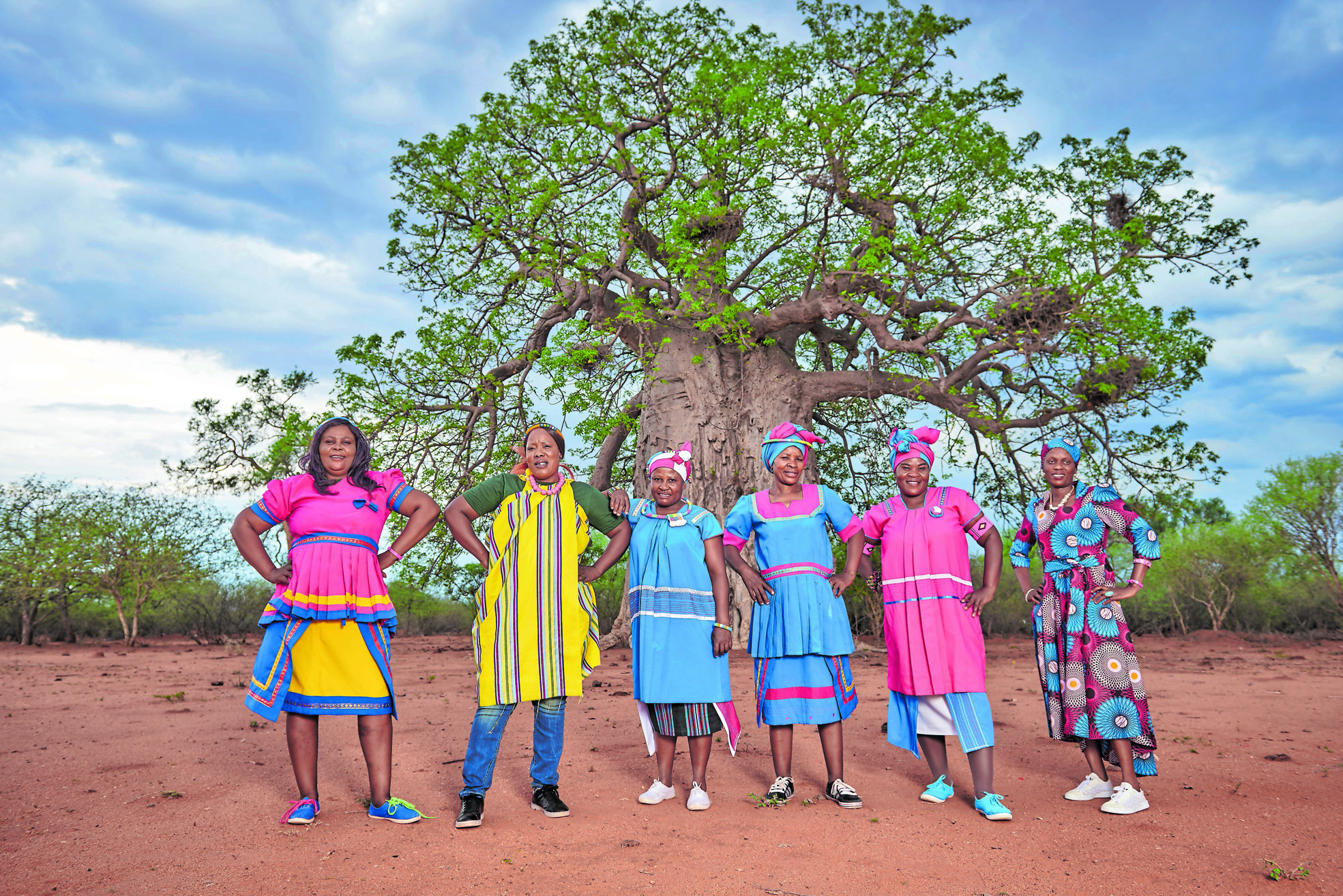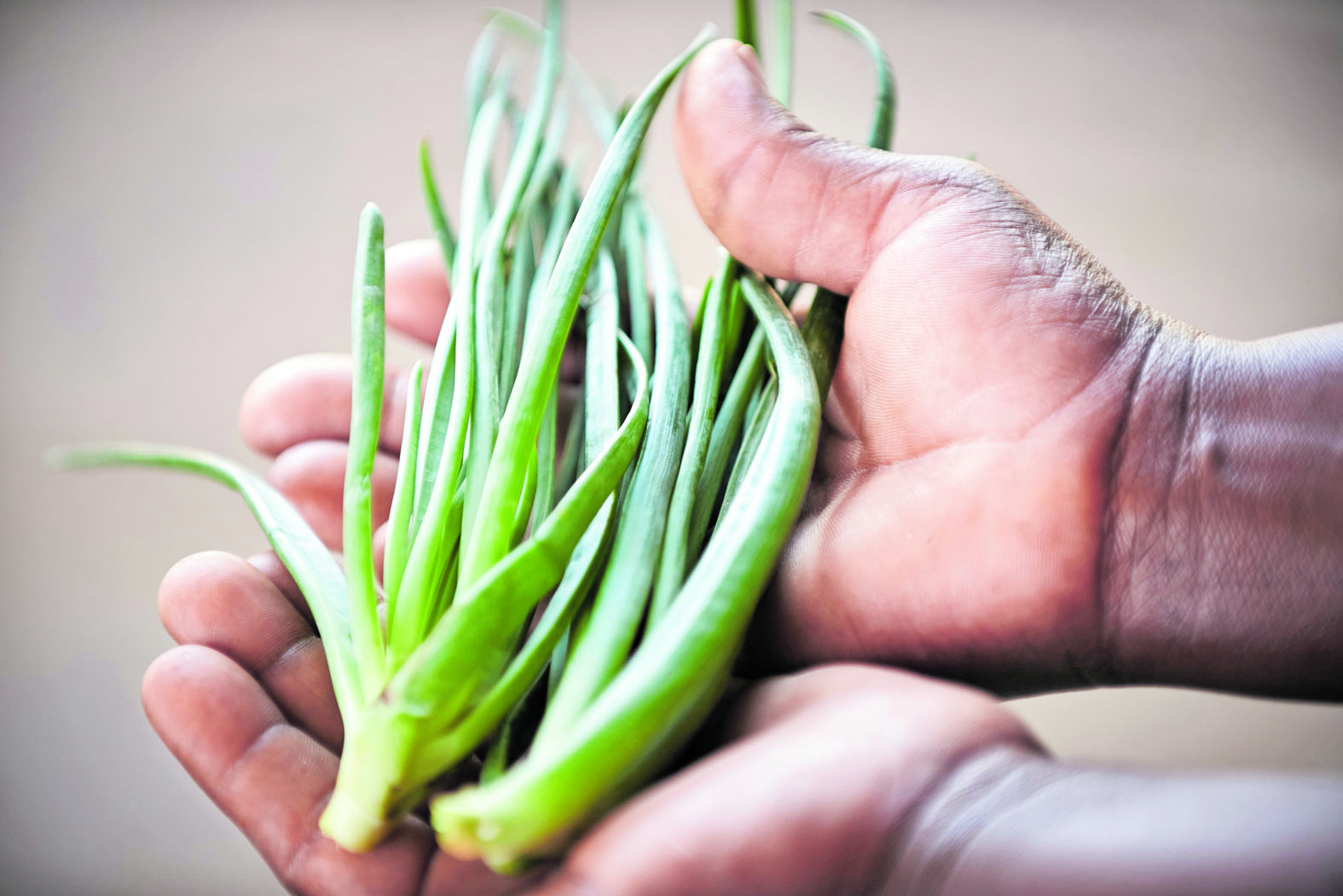In the search for Afari's groundbreaking key ingredient, Margaret Knuppe found the women who are the essence of the brand
As a former beauty editor and founder of rubybox, Margaux Knuppe has come to favour the simplest, most effective of products. Her approach to the business of luxury skincare is similarly no-nonsense: she firmly believes that those paying a premium for something special will also gladly give something back.
Cayleigh Bright: Afari was a long time in the making, and you must have heard “you’ll never find that ingredient” more than once. Could you tell us more about this?
Margaux Knuppe: After selling rubybox in late 2014, I was invited on Sean Privett’s Fynbos Trail in the heart of the Cape Floral Kingdom.
Learning that there are 8 000+ species of fynbos in South Africa, of which 6 000 are endemic, meant one thing to me: opportunity. How can we only know about the skin-repairing properties of rooibos and buchu — surely there had to be another indigeous species with incredible skincare benefits? I was on a mission to find this unknown botanical as I wanted to showcase it to the rest of the world.

I approached a well-known cosmetic chemist to see if there was a new, indigenous active ingredient that we could include in a luxury, anti-ageing skincare range. He didn’t know of any other local species that had anti-ageing benefits that had also been clinically tested. As the beauty industry thrives on innovation, I embarked on a journey to find a new botanical with anti-ageing benefits.
Raw ingredient suppliers told me I was looking for a needle in a haystack and that every time I identified a new potential raw ingredient I would have to spend hundreds of thousands to see if it had any skincare benefits — and I would have to conduct my own clinical trials. I spoke to the head of phytochemistry at Wits: no luck.
At dinner with my ex-business partner from rubybox, I filled her in on my ingredient hunt and her husband told me about a friend who was farming moringa in Limpopo. He introduced us, but we didn’t manage to meet face-to-face.
Time passed and I heard from the cosmetic chemist again, who had just returned from an annual raw ingredients expo in Paris. He had met up with a farmer from Limpopo who had just finished clinical trials on a brand-new indigenous raw ingredient called Bulbine frutescens. Can you believe it? It was the same farmer.
After reading through the clinical trial results, I knew the ingredient was going to be a gamechanger.
Importantly, the farm employs mostly women in rural Limpopo and produces the Bulbine frutescens in a socially and environmentally sustainable manner. The production facility meets European standards and the agricultural process used to produce it is ECOCERT certified organic.
CB: It’s been a big year for you. Other than bringing your skincare range to life, what are you celebrating this season?
MK: I’m fortunate to have most of my family close by, so I’m looking forward to spending some quality time with them over the holidays.
CB: It’s also, of course, the season for giving. Could you tell us a little about what you’ve called Afari’s “circle of upliftment”?
MK: I wanted to empower women through the skincare range; both those at the source who are planting and harvesting the raw ingredient in Limpopo, and those purchasing the end product.
I believe that there are customers, particularly millennials, who are willing to pay a premium for products that do good, almost like a luxury tax: it justifies an indulgence. The premium can be passed on to people who need it most.
In Afari’s case, we source our breakthrough ingredient, Bulbine frutescens, from an organic farm in rural Limpopo, where it is sustainably cultivated by female harvesters from the local community. Each Afari product sold directly benefits these women, their families and the greater community. As an Afari customer, you keep this circle of upliftment flowing.
CB: How do you feel about giving beauty products as gifts?
MK: I’ve always given gifts that I would like to receive, and beauty products have been a big part of that. The joy a new fragrance, lipstick or treatment can bring means I always include beauty products in my gift giving. People tend to stick to what they know, so by gifting new or niche beauty products, I’ve often introduced some of my favourites to others.

CB: How did your experience as a beauty editor influence Afari?
MK: In my career, when I was paid to test products, I learnt to read ingredient labels and scientific journals in the pursuit of finding the best products for articles.
Having tested thousands of products and numerous trends, including the K Beauty 10-product skincare routine, and as a working mum in her early thirties, I was looking for an anti-ageing range that addressed all the major ageing concerns in as few products as possible. Plus, I wanted to support the local industry and empower women.
I wanted an indigenous ingredient with skincare benefits — and antioxidant levels on par with Idebenone and green tea — that we could showcase to the rest of the world. I wanted to house it in a luxury skincare range with a conscience.
Another thing that was important for me was to find airless pumps for the packaging. Even though jars are perceived as more premium, oxygen and bacteria that get in each time you open the jar can degrade active ingredients. I wanted to ensure the Afari skincare collection is effective down to the last pump in the bottle.
CB: Your key ingredient and your business model make Afari special. In what others ways are your products unique or unusual?
MK: As a time-poor, working mum, I wanted to create a skincare range that addressed the major signs of ageing — fine lines, wrinkles, dehydration, enlarged pores, pigmentation and dullness — in four products. Three to use in the morning (Priming Cleanser, Brightening Elixir and Protecting Day Cream SPF30) and three for the evening (Priming Cleanser, Brightening Elixir and Overnight Regenerating Cream). Plus, I wanted to support local women and empower other women while doing so.
Now that I have the ingredient, with the clinical results to back it up, as well as the fact that it’s being sustainably farmed by female harvesters who directly benefit from the sales, it’s just a matter of showcasing Afari to the rest of the world.
CB: If there were no restrictions, what would be on your ultimate skincare wishlist this season?
MK: I would use the Afari skincare collection daily, but my bathtime routine would include Susan Kaufmann Oil Bath for the Senses followed by a good helping of La Mer Body Crème. And the biggest luxury of all would be to have the bathroom to myself, with no interruptions from the little people in my life.
CB: Looking ahead to next year, what’s one change that you’d love to see in the beauty industry?
MK: There’s still a perception of Africa being an untapped resource, and it’s true — South Africa ranks as the third-most biodiverse country in the world, which in the plant-based raw ingredient world translates to a lot of opportunity. I’d like to see more brands, both local and international, sourcing locally, fuelling job creation and reducing their carbon footprint.